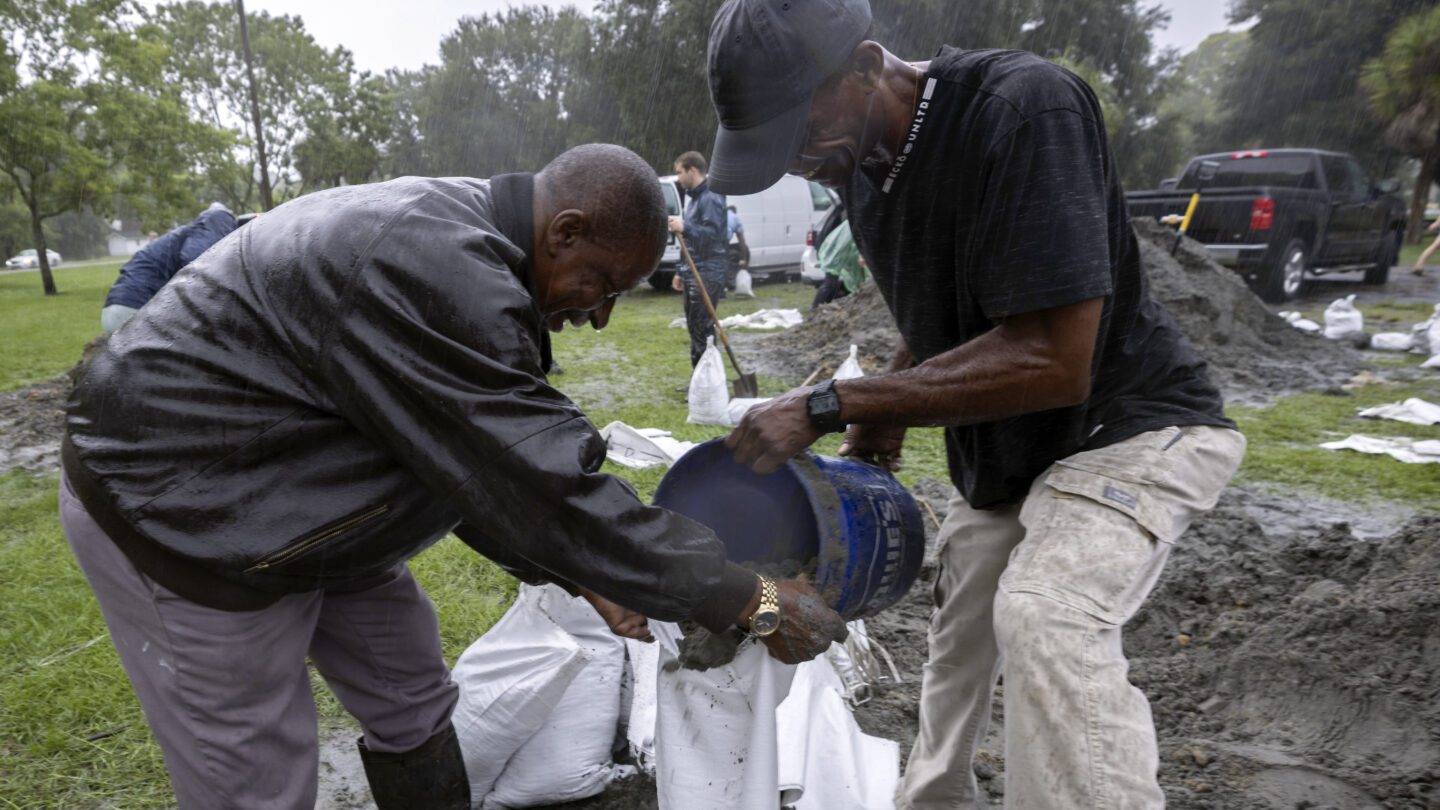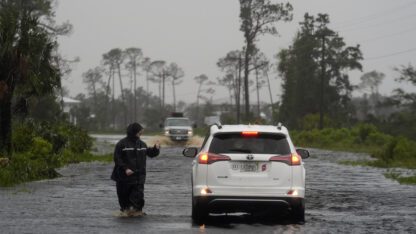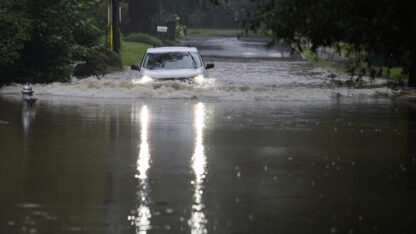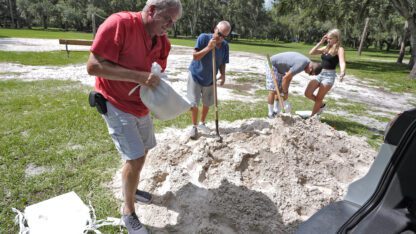Updated at 5:44 p.m.
This coverage is made possible through a partnership between WABE and Grist, a nonprofit environmental media organization.
Coastal Georgia is expecting intense rainfall from Tropical Storm Debby, which will likely bring widespread flooding, road closures and downed trees and power lines.
“This type of rain hovering over us, coming with the intensity that they tell us it is coming, it’s gonna catch a whole lot of people by surprise,” said Chester Ellis, the county commission chair in Chatham County, which includes Savannah and Tybee Island.
Forecasters indeed expect the storm to hover: It’s predicted to stall over the Georgia and South Carolina coasts, continually dumping more rain than the region’s stormwater systems can handle. The National Hurricane Center is forecasting “potentially historic heavy rainfall” of 10 to 20 inches in parts of southeast Georgia and coastal South Carolina.
Crews in Savannah have been clearing storm drains and taking other steps to prepare for the deluge. But the system can keep up with about 2 to 2.5 inches of rain per hour, according to Savannah City Manager Jay Melder, and this storm will likely outstrip that.
“We’re gonna make sure that everything is in place, that our system is working as well as it can be,” he said. “But that much water, we are going to see flooding.”
The city routinely experiences flooding during heavy summer thunderstorms, in spots where water just can’t drain quickly enough or low-lying areas, such as where roads dip below train bridges. Officials said they’re expecting to see floods in all those usual places — as well as others that don’t flood as frequently — because of the intensity of this storm.
Savannah has issued a map of likely flood spots and road closures and plans to update it throughout the storm.
Residents who have spent the last few days stocking up on supplies and gathering sandbags should now get ready to hunker down, officials said Monday. Chatham County and all its municipalities, including Savannah, are imposing a curfew to discourage people from going outside during the worst of the storm.
“This is nothing to play with,” said Savannah Mayor Van Johnson. “If you don’t have to be on the street, don’t be on the street.”
The Chatham-Savannah Authority for the Homeless and a street team of Savannah staffers have been doing outreach to the city’s homeless population, Melder said, to direct them to shelters where they can safely ride out the storm.
Camden County and Glynn County have opened shelters of last resort for those who need assistance or live in flood-prone areas.
The storm is expected to deliver strong winds that could bring down trees and power lines; Glynn County, home to Brunswick and the Golden Isles, was already reporting downed trees at midday. Officials reminded people to stay away from downed power lines — and stay out of floodwater, which could be concealing power lines.
Georgia’s electricity providers said they’re getting ready to respond to storm damage and power outages. Georgia Power and the state’s electric membership cooperatives both said they’ve moved crews and equipment into place and are coordinating with emergency officials.
There can be delays restoring power during a storm of this intensity because power crews have to wait until it’s safe to be out on the roads.
Debby is flooding Georgia and Florida during a summer that has seen devastating heat and other impacts of climate change — and climate is a key factor in hurricanes as well. In general, the warming climate makes hurricanes more intense, meaning more severe rain, wind and storm surge. Climate change is also heating up sea surface temperatures, which can make hurricanes larger and more powerful.









